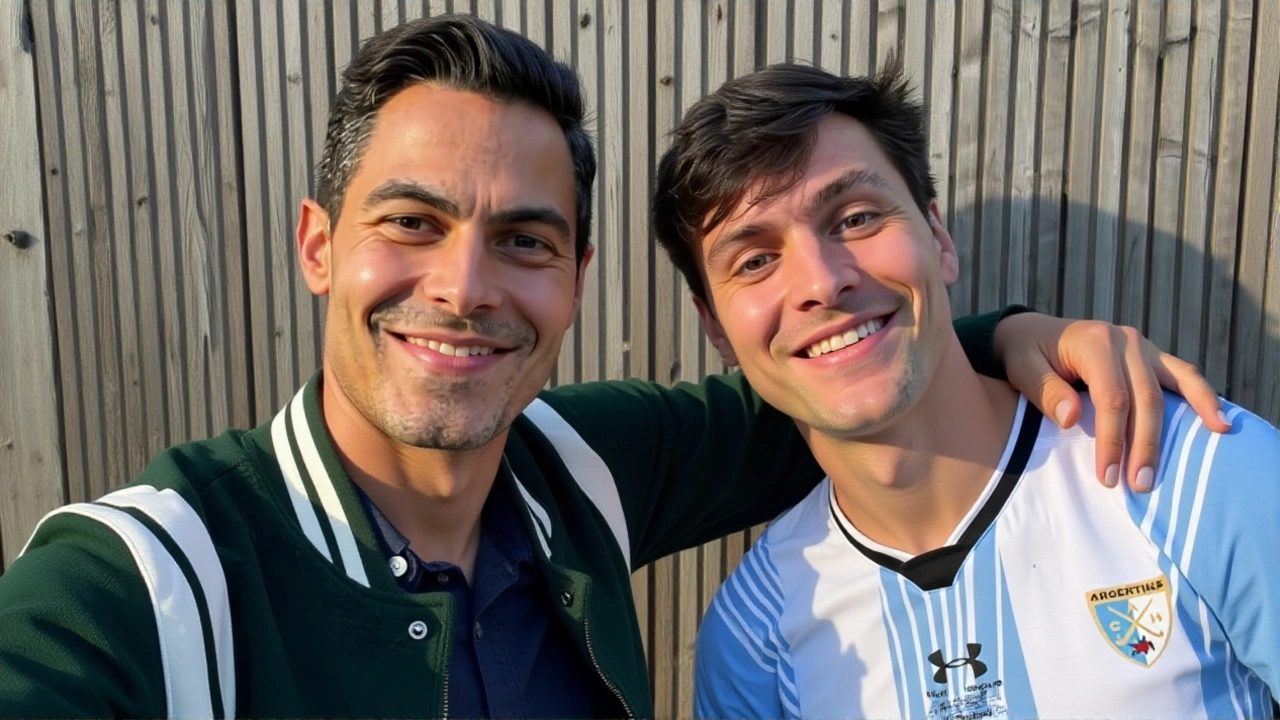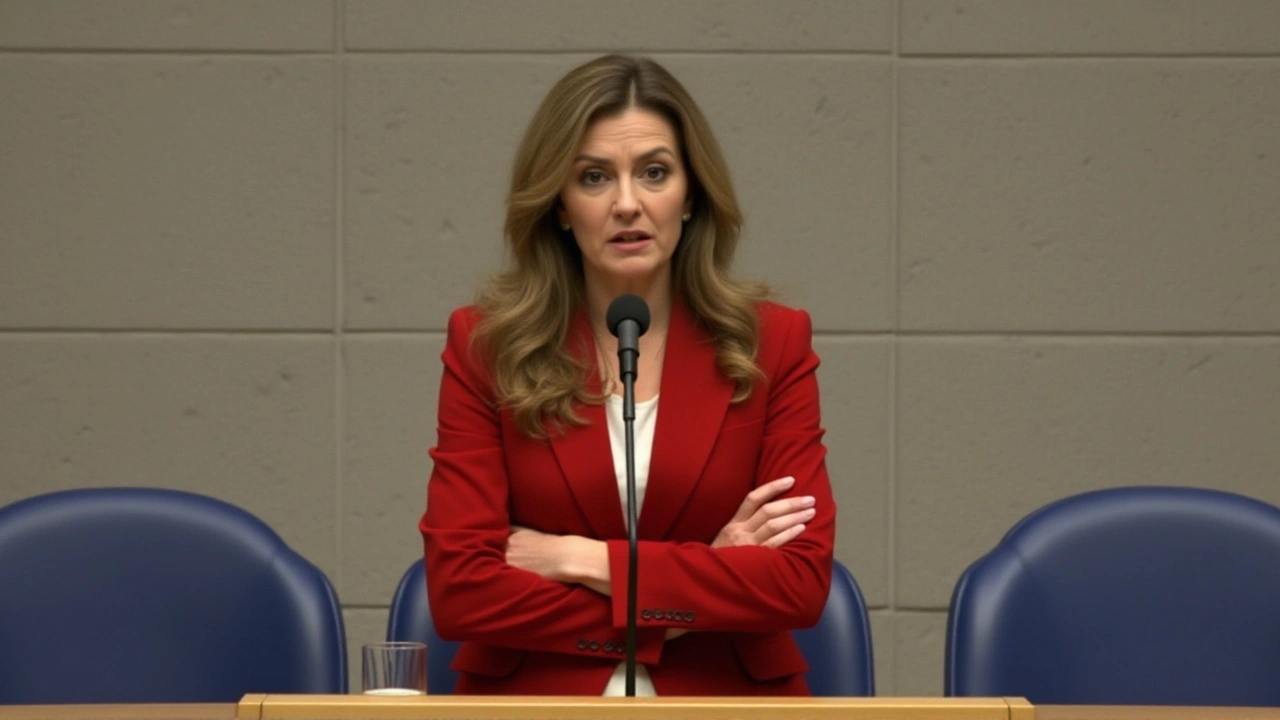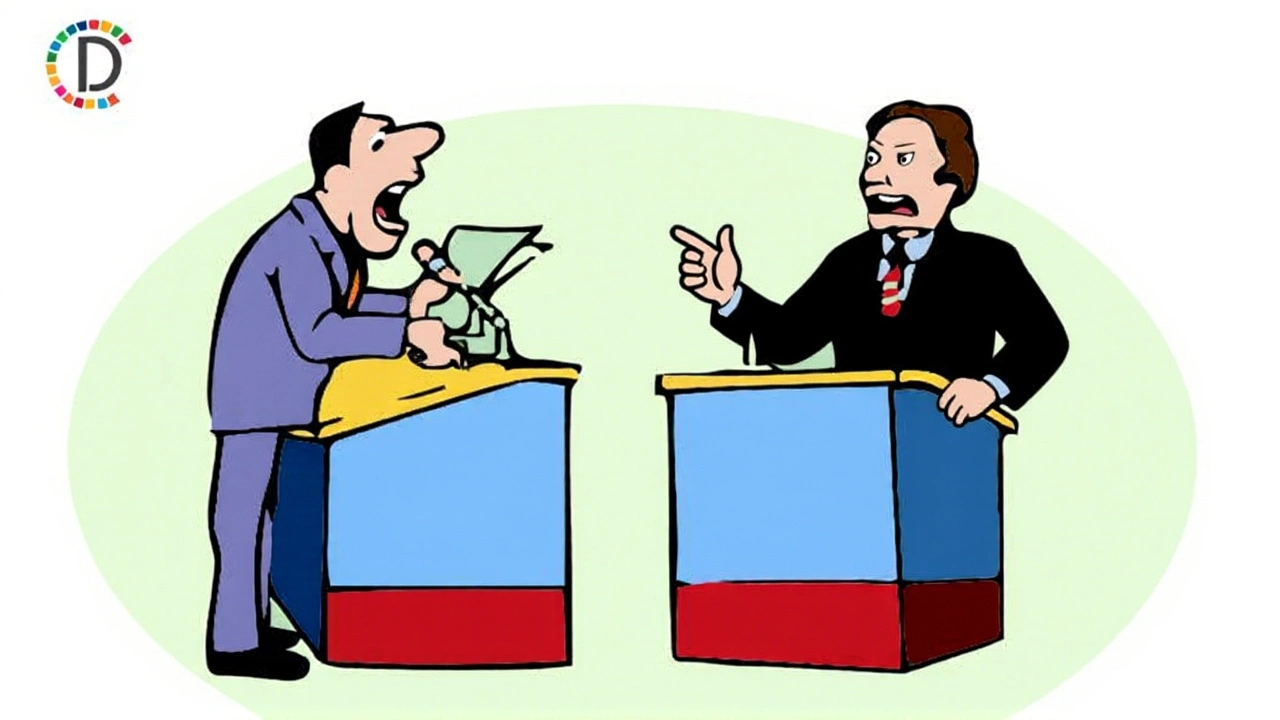Nicolás Keenan’s Olympic Visibility as Gay Athlete Sparks Global Attention

When Nicolás Santiago Keenan stepped onto the pitch at the Paris 2024 OlympicsParis in July, he wasn’t just playing for Argentina’s Los Leones. He was carrying the weight—and the hope—of a generation of LGBTQ+ athletes who’ve never seen themselves reflected on the world’s biggest sporting stage. "I just try to lead by example," Keenan said after a tense 2-2 draw against India, his voice steady but eyes bright. And in a sport where male players rarely come out publicly, that quiet courage has become a roar.
A Journey From Buenos Aires Suburbs to Olympic Stardom
Born on May 6, 1997, in the quiet outskirts of Buenos Aires, Keenan didn’t grow up dreaming of the Netherlands. But by 18, he’d already outgrown Argentina’s domestic league. The move to join Klein Zwitserland in the Dutch Hoofdklasse wasn’t just about better competition—it was about survival. "In Argentina, you learn to hide parts of yourself to keep playing," Keenan told El País in 2023. "In the Netherlands, I could breathe. And then I realized… maybe I could help others breathe too." His career stats tell one story: 82 senior outdoor matches, 20 goals, 41 wins, 6 draws. He played in Tokyo 2020, the 2023 Hockey World Cup (6 appearances, 4 goals), and the 2023/24 FIH Pro League (15 appearances, 4 goals). But the numbers don’t capture what matters most: the visibility. At a time when only a handful of elite male field hockey players have come out globally, Keenan’s presence is a seismic shift.The Political Romance That Captured the World
Then there’s Rob Jetten. Former Deputy Prime Minister of the Netherlands and Minister for Climate and Energy Policy until 2024. The man who, on a rainy Paris evening in August, posted a photo on Instagram holding Keenan’s jersey, captioned simply: "Proud of you, love." The post went viral. Within hours, fans were comparing their relationship to Red, White & Royal Blue—the 2018 romantic novel turned Amazon film about a U.S. president’s son and a British prince. Others drew parallels to Queen Máxima of the Netherlands, herself an Argentine native, and her marriage to King Willem-Alexander. The irony wasn’t lost: here was an Argentine athlete, now engaged to a Dutch politician, becoming a symbol of cross-border love in a sport still struggling with homophobia.A Nude Calendar for Mental Health
While the world watched Keenan’s Olympic performances, his club, Klein Zwitserland, quietly launched a project that stunned even seasoned sports journalists: a nude calendar featuring players, with proceeds going to men’s mental health charities. The initiative, organized by the team’s wellness committee, aimed to challenge toxic masculinity in sports. "We’re not doing this for clicks," said team captain Lennart van Dijk. "We’re doing it because guys like Nicolás need to know they’re not alone—and that asking for help isn’t weakness." The calendar sold out in 72 hours. Donations exceeded €120,000. And Keenan? He was the first to pose.
Engagement After the Final Whistle
On November 26, 2024, Outsports broke the news: Keenan and Jetten were engaged. The proposal, reportedly made in a quiet garden in The Hague, came just weeks after Argentina’s Olympic campaign ended with two losses and one tie in group play. The team finished fifth in their pool, missing the knockout stage—but Keenan’s legacy was already cemented.Why This Matters Beyond the Pitch
Field hockey has long been a sport of quiet dignity. But dignity doesn’t always mean inclusion. In men’s field hockey, openly gay athletes remain rare. According to the International Hockey Federation, fewer than 10 active male players at the elite level have publicly identified as gay. Keenan’s visibility isn’t just personal—it’s political. His story intersects with mental health, immigration, politics, and the slow, painful evolution of sports culture. His Wikipedia page, viewed over 104,000 times since 2007, now ranks him as the 96th most popular Argentine athlete. That’s not just traffic. That’s recognition. That’s a door being kicked open.
What’s Next for Keenan?
He’s signed with Klein Zwitserland through 2026. Argentina is already preparing for the 2026 Hockey World Cup in India. And Keenan? He’s talking about starting a foundation for LGBTQ+ youth athletes in Latin America. "I don’t want to be the only one," he said. "I want to be the first of many." The Dutch government has hinted at possible support for the initiative. Jetten, now back in private life after leaving office, has said he’ll help however he can. "Love isn’t politics," he told Dutch TV. "But sometimes, love changes politics." And in a sport where silence has been the norm, Keenan has chosen to speak—not with a megaphone, but with his jersey, his goals, his love, and his courage.Frequently Asked Questions
How many openly gay male field hockey players are there at the elite level globally?
Fewer than 10 active male players at the elite international level have publicly identified as gay, according to the International Hockey Federation. Nicolás Keenan is among the most visible, alongside a handful of others in the Netherlands, Australia, and Germany. His prominence in the Olympics and media spotlight makes him a rare figure in a sport where stigma still lingers.
Why is Keenan’s relationship with Rob Jetten significant in sports history?
It’s one of the first high-profile relationships between an openly gay male Olympian and a sitting national political leader. Jetten’s public support during the Paris Games, followed by their engagement, blurred lines between politics, sports, and personal identity in a way rarely seen. The comparison to Red, White & Royal Blue wasn’t just fan fiction—it reflected a cultural shift in how society views LGBTQ+ athletes in power spaces.
What impact has the Klein Zwitserland nude calendar had on men’s mental health in sports?
The calendar raised over €120,000 for men’s mental health charities and sparked global conversations about toxic masculinity in athletics. Several national federations, including Belgium and South Korea, have since reached out to replicate the model. Mental health organizations reported a 40% spike in inquiries from male athletes in the Netherlands following the campaign’s launch.
How does Keenan’s career reflect broader trends in international field hockey?
Keenan’s move from Argentina to the Netherlands at 18 mirrors a well-established pattern: elite players from Latin America and Asia often relocate to European leagues for higher competition, funding, and infrastructure. But Keenan’s openness about his identity adds a new dimension—showing that migration isn’t just about skill development, but also about personal freedom and safety.
What are Keenan’s future plans beyond playing?
Keenan is planning to launch a foundation to support LGBTQ+ youth athletes in Latin America, focusing on access to training, mental health resources, and safe spaces. He’s already in talks with Argentine sports ministries and Dutch NGOs. His goal: to ensure no young athlete feels forced to choose between their identity and their sport.
Has Keenan faced backlash for being openly gay in field hockey?
While he’s received overwhelming global support, Keenan has acknowledged receiving anonymous hate messages, particularly after the nude calendar and engagement news. Argentina’s national team has publicly stood by him, but some conservative media outlets in Latin America have criticized his visibility. Still, he says the encouragement from young fans far outweighs the negativity.